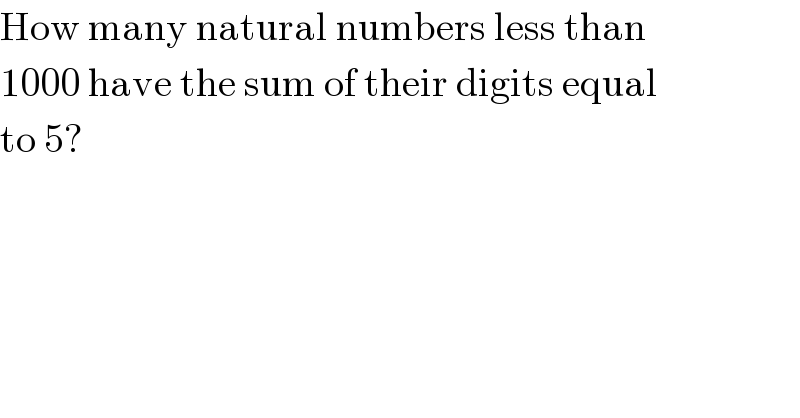
Question and Answers Forum
Question Number 111541 by Aina Samuel Temidayo last updated on 04/Sep/20

Answered by nimnim last updated on 04/Sep/20

Answered by mr W last updated on 04/Sep/20
![one digit numbers: 1 number two digit numbers: a+b=5 a∈[1,9] b∈[0,9] (x+x^2 +x^3 +...)(1+x+x^2 +x^3 +...) =(x/((1−x)^2 )) =xΣ_(k=0) ^∞ C_1 ^(k+1) x^k coef. of x^5 is C_1 ^5 =5 ⇒5 numbers three digit numbers: (x+x^2 +x^3 +...)(1+x+x^2 +x^3 +...)^2 (x/((1−x)^3 ))=xΣ_(k=0) ^∞ C_2 ^(k+2) x^k coef. of x^5 is C_2 ^6 =15 ⇒15 numbers ⇒total 1+5+15=21 numbers](Q111555.png)
Commented by mr W last updated on 04/Sep/20

Commented by Aina Samuel Temidayo last updated on 04/Sep/20

Commented by mr W last updated on 04/Sep/20

Answered by 1549442205PVT last updated on 04/Sep/20

